Department of Electronics Engineering

A total of (18) employees are working in the Electronics Department. (4) associate professors; (2) Lecturers, (4) Assistant lecturers and (7) Tutors. It is composed of (1) industrial expert. A total of (26) teaching subjects are being taught.
In the first year, Fundamentals of Electronic Circuits. In the second year, Communication Principles, Electronic Engineering Circuits, Digital Electronics, Microelectronics, and Technical Programming.
In the third year, Engineering Circuit Analysis, Digital Communication, Engineering Electromagnetic, Integrated Electronics, Modeling, and Control; Analog and Digital Electronics. After that, in the fourth year, Computer Communication, Digital Design with HDL, Modern Control Systems, Industrial Electronics and Control, and Computer Science.
In the fifth year, Advanced Electronics, PLC Programming Methods and Techniques, Digital Control Systems, Digital Signal Processing, Microwave Engineering, Modern Electronic Communication Systems, and Industrial Management. In the Final year, Humanities and Social Science, and Computer Networking subjects are being taught.
There are a total of (5) teaching lab rooms. Lab (1)_ Communication Lab, Lab (2)_ Electronic Device and Instrument Lab, Lab (3)_Control Lab, Lab (4)_Computer and Networking and Lab (5)_ Embedded Lab. For those who want to do something related to an EC major, we suggested that the four “Cs”. Those are…(1) Communication (2) Computer (3) Control (4) Circuit…. etc.
PEO 1: To nurture students’ ability to solve complex electronic engineering problems and adopt themselves to rapidly evolving technology by providing a strong foundation in the electronic engineering subjects which will facilitate understanding of new technology
PEO 2: To build up students’ ability to enhance in the design and research of electronic engineering fields as team on multidisciplinary projects through effective communication skills and leader- ship qualities
PEO 3: To foster students” ability in professional development and lifelong learning by engaging in professional and graduate education in order to stay current in their field and achieve continued professional growth
- To raise the competent electronic engineers fully equipped with technological knowledge and expertise
- To become the qualified and professional teachers in the relevant subject area
- To create the best knowledge opportunities concerning with technological universities
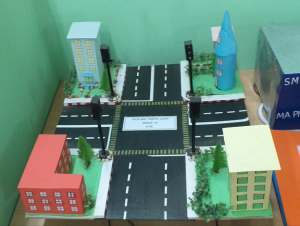
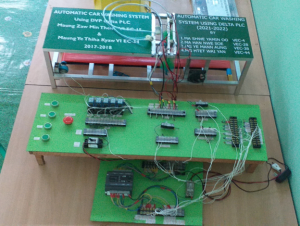
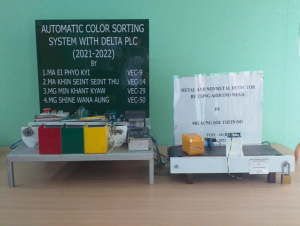
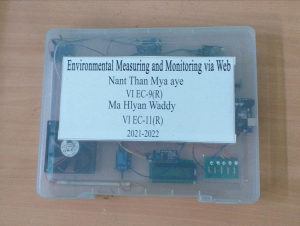
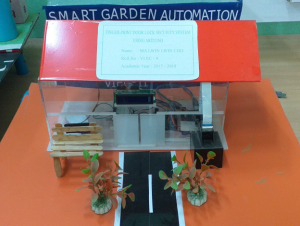
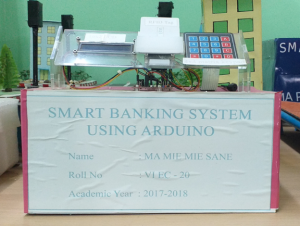
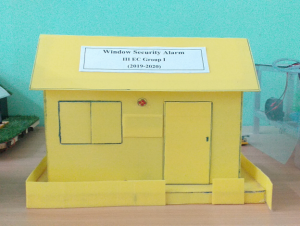
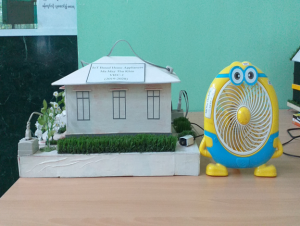
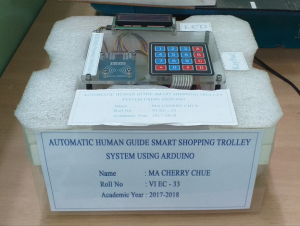
| Research Title | Author |
|---|---|
| Implementation of Acoustic Echo Cancellation Using Digital Signal Processing with MATLAB Environments | Daw Myint Myint Mon |
| Analysis on Missile Guidance Control against High Speed Target Based On Fuzzy Logic | Daw Myint Myint Mon |
| Implementation of a Time-Frequency Signal Analysis System for Power Quality Assessment | Daw Myint Myint Mon |
| Analysis of Tapped Delay Line Channel Model for Modern Telecommunication System | Daw Myint Myint Mon |
| Design and Simulation of 2x2 MIMO Antenna for 4G LTE Mobile Network in Myanmar | Daw Myint Myint Mon |
| Simulation of Detected Echo Signals for Radar in Course Teaching | Daw Myint Myint Mon |
| SIMULINK Model Design for Cellular Digital Packet Data Communication System in 5G Telecommunication | Daw Myint Myint Mon |
| Sr.No. | Name | Position | Degree |
|---|---|---|---|
| 1 | Daw Myint Myint Mon | Associate Professor & Head | M.E (EC) |
| 2 | Daw Yi Yi Mya | Assistant Lecturer | B.E (EC) |
| 3 | Daw Lay Nway Hnaung | Assistant Lecturer | B.E (EC) |
| 4 | Daw Chue Nandar Khaing | Assistant Lecturer | B.E (EC) |
| 5 | Daw Pieti Soe | Tutor | B.E (EC) |
| 6 | Daw Thin Yanant Tun | Tutor | B.E (EC) |
| 7 | Daw Khin Lae Lae Tun | Tutor | B.E (EC) |
| 8 | Daw Hnin Pwint Phyu | Tutor | B.E (EC) |
| 9 | Daw Su Mon Phyo | Tutor | B.E (EC) |
| 10 | Daw Aye Aye Nyeint | Tutor | B.E (EC) |
| 11 | Daw May Thu Khin | Tutor | B.E (EC) |
| 12 | U Sa Thaw Tar Soe | I.E 5 | G.T.H.S (ECT) |
